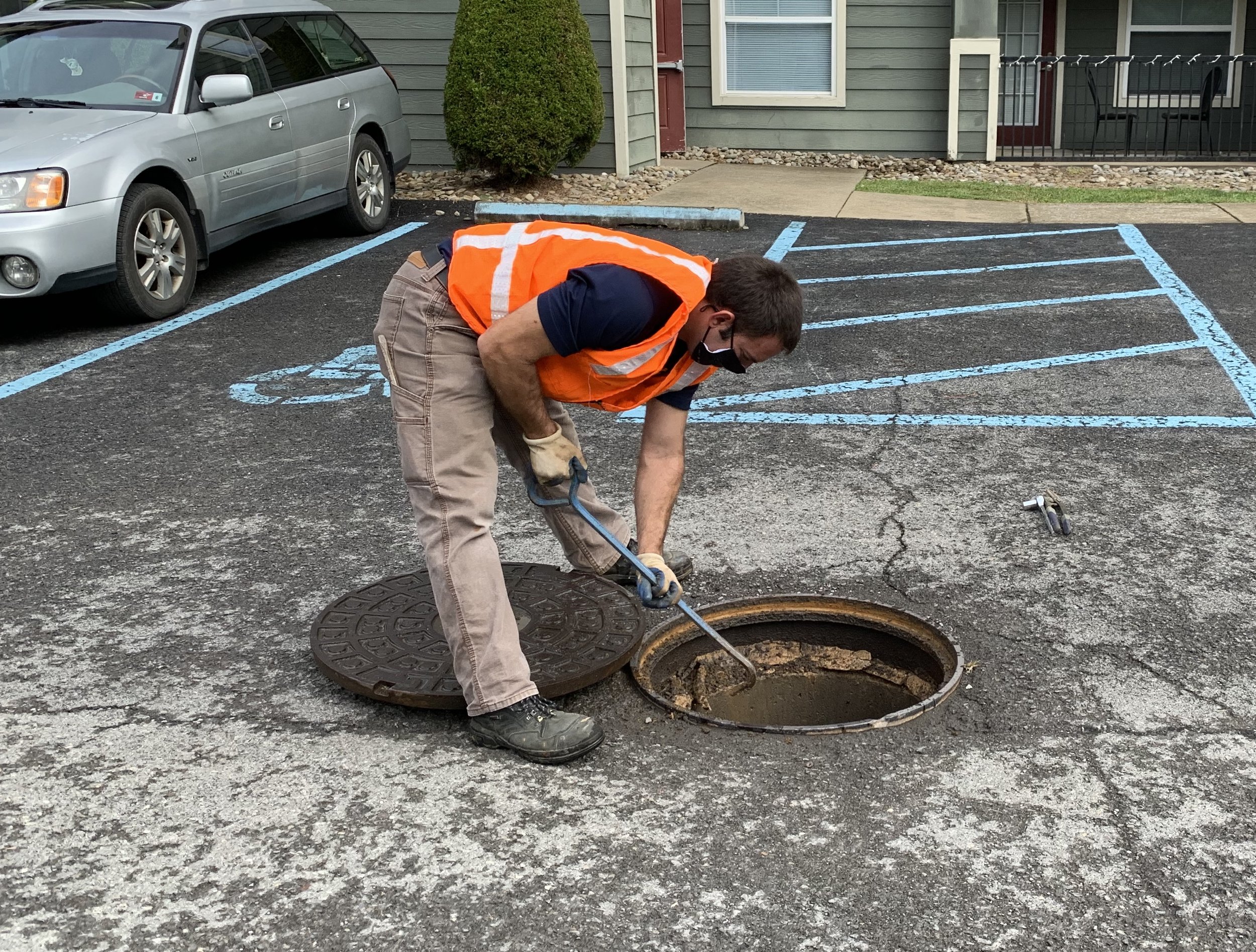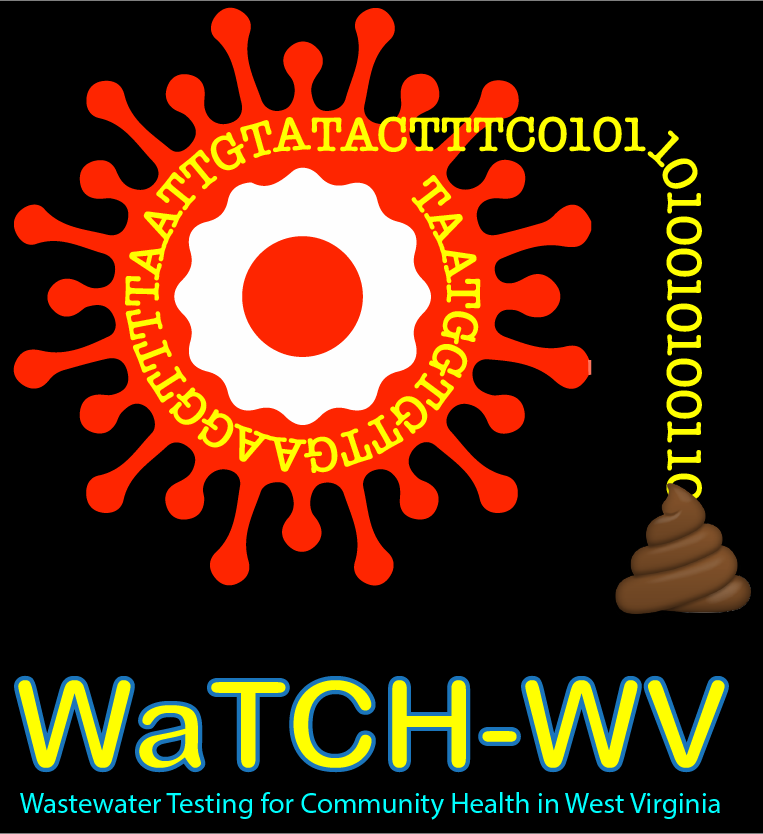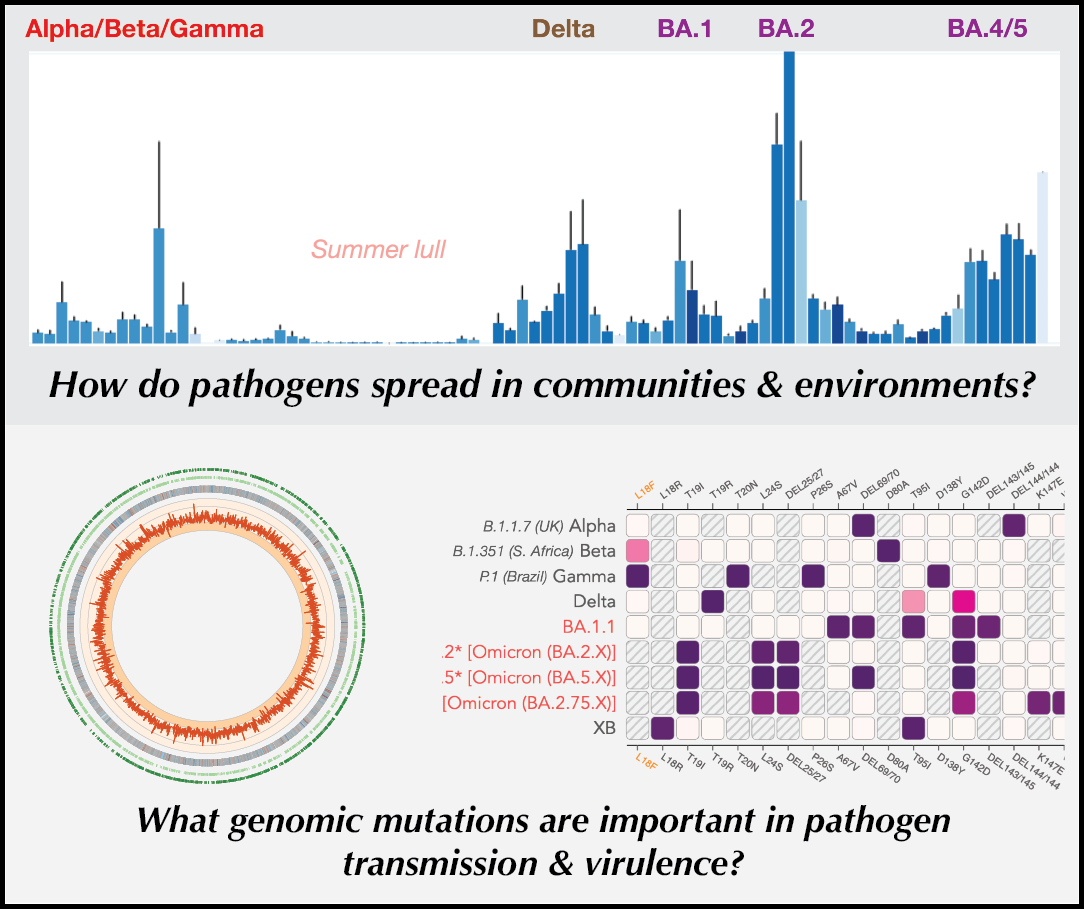
Wastewater Testing for Community Health
The WaTCH-WV Project
What is Wastewater Testing?
Many agents of infectious disease can be detected in community wastewater. From just a few milliliters we can extract the genetic material of such an agent, measure its abundance, and sequence part or all of its genome. By sampling wastewater over time, we can track the appearance of these agents, note when they increase or decrease, and determine how they change and evolve.
How we study it
Wastewater testing does not identify infected individuals; however, the information can be used to inform individual behavior, such as when to wear a mask or avoid mass gatherings. Importantly, with wastewater testing we can identify communities at risk of an outbreak, and guide an effective public health response while mitigating the burden on health care systems.
What we learn from it
What is the WaTCH-WV project?
WaTCH-WV (Wastewater Testing for Community Health in West Virginia) routinely tests wastewater from treatment facilities around WV for the presence of many infectious diseases, including those that cause COVID-19, flu, and RSV.
By the end of 2023, nearly 30 communities actively participate in testing and over 21,000 laboratory tests have been performed.
WaTCH-WV is a collaboration between WV Bureau for Public Health, Marshall University, and West Virginia University. The project began with the onset of the COVID-19 pandemic in June 2020, when MU and WVU researchers independently confirmed the presence of COVID-19 in campus wastewater samples.
Our Mission
Our Vision
Empower community wellness, through environmental tracking of infectious diseases and community indicators of health.
Supporting a more healthful Appalachia.





